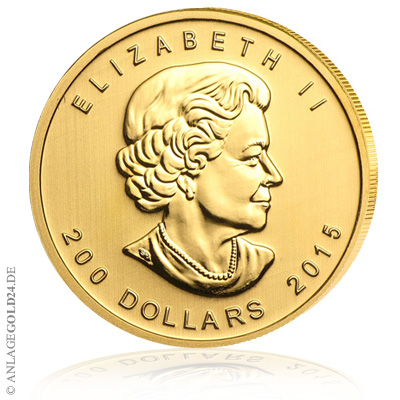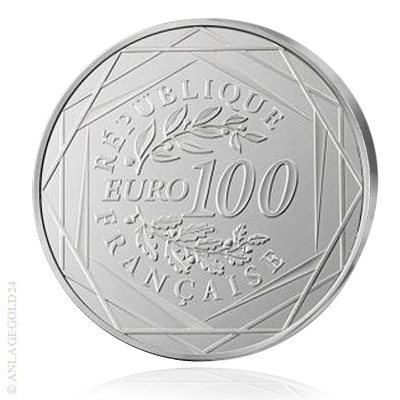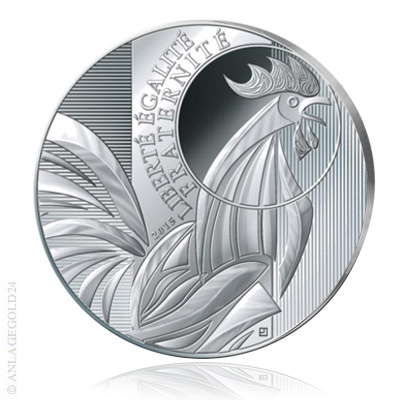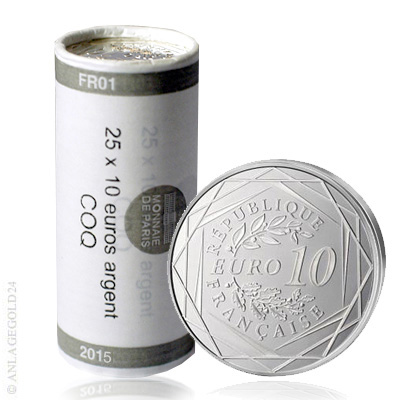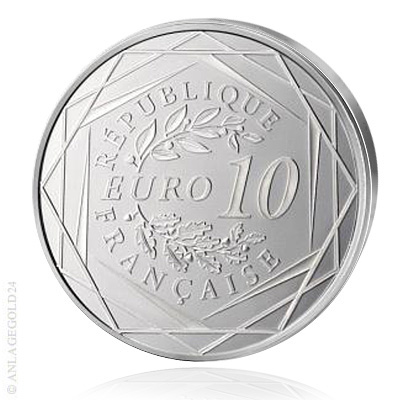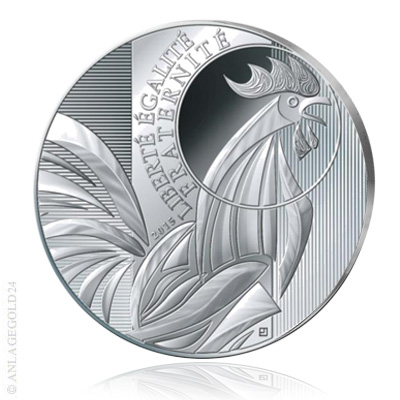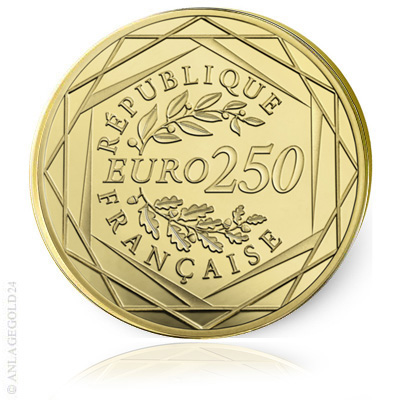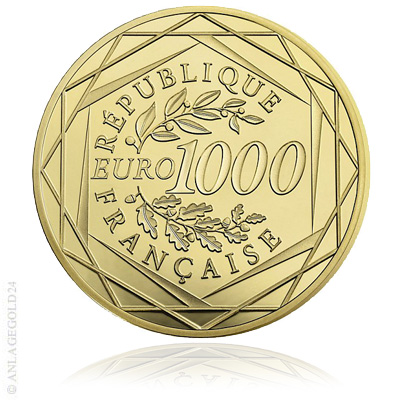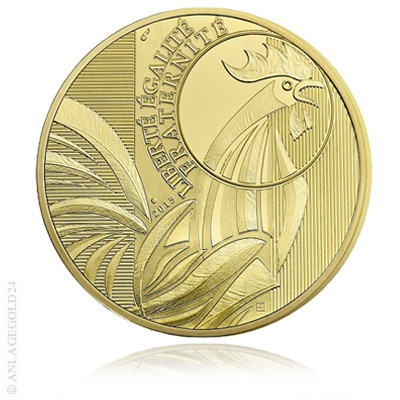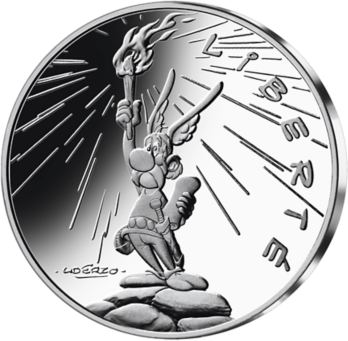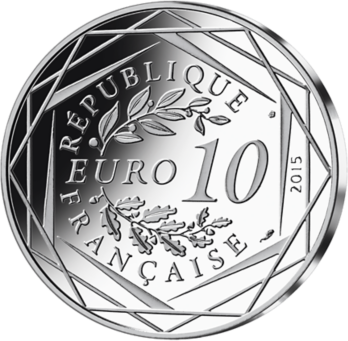
Freitag, 29. Mai 2015
Mittwoch, 27. Mai 2015
Sonntag, 17. Mai 2015
Gold Bullion Buying In Germany Surges On Euro Collapse Concerns
Gold Bullion Buying In Germany Surges On Euro Collapse Concerns
Submitted by GoldCore on 05/17/2015 06:33 -0400
German are rightly concerned about currency debasement of the world’s reserve currency and indeed of all reserve and major currencies today including the euro. Some dismiss this concern as Germans being ‘paranoid’ about inflation. This is not fair to the Germans and shows a complete lack of awareness of history and the risks of currency debasement.
It is worth recalling the Germans experience of hyperinflation. In January of 1919 a single ounce of gold could be purchased for 170 Marks. Within a year the price had increased almost eightfold as currency printing devalued the Mark to over 1,000 Marks per ounce.
The price stabilised over the next year and then doubled in 1921 before surging over 9,300% throughout 1922.
With each passing year the currency fell in value to ever more absurd depths until by November 1923 an ounce of gold - which had cost 170 Marks only five years previously - was trading at 87,000,000,000,000 Marks per ounce.
The Weimar experience teaches us the value of owning money that cannot be created out of thin air by government decree. The Germans have learnt this lesson.
- German gold demand spikes 20% in first quarter
- Gold investment demand surges 63% as jewellery demand falls-
France, Switzerland and Austria see “double digit” rise in demand
- Fear of conflict with Russia, ‘Grexit’ and currency debasement
- Indian gold demand rises 15%- Global gold demand marginally lower but robust - WGC
- Germany knows lessons of history and Weimar hyperinflation
France, Switzerland and Austria see “double digit” rise in demand
- Indian gold demand rises 15%- Global gold demand marginally lower but robust - WGC

Global gold demand remains robust as seen in the latest quarterly figures from the World Gold Council released yesterday. Q1, 2015 gold demand was just 1% lower year on year but was 3% higher quarter on quarter due to a surge in investment demand which was 4% higher year on year and a whopping 63% surge in investment demand quarter on quarter.
European investors increased their purchases gold during the first quarter according to the report. Increase in demand was highest in Germany while investors in France, Switzerland and Austria also showed strong interest in acquiring the precious metal, with “double digit” increases in demand.

The WGC says that German demand for gold coins and bars “spiked” by 20% in the first quarter of 2015 compared to the same period last year.
CNN reported that it is unusual that there should be such strong demand out of Germany given the strength of the economy.
Although this ignores the strong cultural affinity that Germans have with gold and the fact that they are consistently, along with the Austrians and Swiss, the largest buyers of gold in Europe. What has changed is that more German people are buying gold and they are buying larger amounts due to the various risks challenging Europe and indeed the world.
France, Switzerland and Austria all saw strong demand for gold and it is known that in Greece, demand for gold bullion storage and gold sovereigns in particular was strong too during the quarter.
The first quarter saw the exacerbation of the Greek crisis with the election of Syriza, the initiation of QE by the ECB, massive currency volatility with the breaking of the Swiss Franc peg to the Euro, the failure of Austria’s bad bank and very tense relations between the West and Russia over Ukraine.
“The first three months of 2015 represented the strongest start to a year for European gold demand since 2011” when the European sovereign debt crisis was at its peak.

Gold Demand Trends Q1 2015 - World Gold Council
Germans are very concerned about inflation, currency debasement and devaluation due to Mario Draghi’s QE program. Germany had put up strong resistance to ECB euro ‘printing’ but in the end the ECB prevailed when Germany was assured it would not be liable for less reliable government bonds bought by other central banks.
Italian banker Mario Draghi said yesterday that the quantitative program has “proven so far to be potent, more so than many observers anticipated.” At a speech to the IMF at headquarters in Washington the ex-Goldman banker said that “while we have already seen a substantial effect of our measures on asset prices and economic confidence, what ultimately matters is that we see an equivalent effect on investment, consumption and inflation.”

Draghi’s QE has not achieved any of its stated objectives. His pronouncement that it has been “potent” is therefore premature. History offers no assurances that these objectives will be met.
Indeed, even very recent history is not assuring. QE in Japan and in the U.S. has had little effect on the real economy. The primary beneficiaries, as Alan Greenspan recently pointed out, were the super-rich for whom it was a “terrific success.”
The fact that QE in the U.S. has not yet led to high inflation is not proof that it cannot happen. The Fed’s balance sheet is still bloated and we will not be in a position to judge the efficacy of the experiment until it has been fully wound down - if it ever is. Indeed, the recent string of poor economic data out of the U.S. suggests that rather than interest rate rises, the Fed may be forced to embark on QE4.
German are rightly concerned about currency debasement of the world’s reserve currency and indeed of all reserve and major currencies today including the euro. Some dismiss this concern as Germans being ‘paranoid’ about inflation. This is not fair to the Germans and shows a complete lack of awareness of history and the risks of currency debasement.

It also shows a huge complacency and the dangerous thinking of this is a “new paradigm” and “this time is different.” This time is never different and the Germans know this.
Psychological scars were inflicted by the epic hyperinflation experienced by Germany in the Weimar Republic - a hyperinflation caused by unlimited currency creation by a desperate central bank. Germans have learnt the lessons of history - unlike many other nations today.
It is worth recalling the Germans experience of hyperinflation. In January of 1919 a single ounce of gold could be purchased for 170 Marks. Within a year the price had increased almost eightfold as currency printing devalued the Mark to over 1,000 Marks per ounce.
The price stabilised over the next year and then doubled in 1921 before surging over 9,300% throughout 1922.
With each passing year the currency fell in value to ever more absurd depths until by November 1923 an ounce of gold - which had cost 170 Marks only five years previously - was trading at 87,000,000,000,000 Marks per ounce.

Silver saw similar price gains - or rather to put it more accurately silver too remained a store of value and maintained purchasing power as the currency collapsed.
The bitter hardship and instability arising out of this experiment by people who believed they knew best was only ‘stabilised’ by the fascist war machine and the rise of Hitler and the Nazis which resulted in further economic hardship and collapse after their defeat in World War II - largely at the hands of the Russians.
The Weimar experience teaches us the value of owning money that cannot be created out of thin air by government decree. The Germans have learnt this lesson.
It is ironic that the people living in the strongest economy in the EU and the one with the best outlooks are buying more gold than people in much more vulnerable countries. Gold buying in Ireland, Portugal, Spain and Italy remains very low despite people in these economies being even more exposed to financial risk than the Germans.
Before some market commentator decides to attack us and call us gold “bugs” who are predicting hyperinflation, let us qualify. We are not predicting hyperinflation.
We feel it is important to look at history and to acknowledge that hyperinflation is a possibility - especially if central banks continue to debase currencies en masse. Currently, it remains a low possibility, however what is a strong possibility and indeed is something we view as inevitable is very significant inflation and stagflation in the coming years and hence the need to own physical gold and silver in secure vaults internationally.
One of the most successful fund managers in the world, Ray Dalio, addressing the influential Council on Foreign Relations about gold, recently said, “it’s not sensible not to own gold”. He added, “there is no sensible reason other than you don’t know history and you don’t know the economics of it”.
He described gold as a currency comparable to the dollar or yen or euro and suggested that investors hold 10% of their savings in physical gold.
Storing Gold? 7 Key Must Haves
Breaking News and Research Here
Samstag, 16. Mai 2015
manchmal fühle ich mich unnütz
manchmal fühle ich mich unnütz
sometimes i feel useless but then i remember i breathe out carbon dioxide for plants
Zentralbank von Litauen verkauft Goldmünzen im Internet
Zentralbank von Litauen verkauft Goldmünzen im Internet

Anzeige:
Die Zentralbank von Litauen hat diese Woche damit begonnen, Goldmünzen aus ihren Beständen im Internet zu versteigern. Die Auktionen sollen noch bis zum 18. Mai laufen.
Wie die Zentralbank von Litauen am Dienstag (12.05.15) auf ihrer Internetseite bekannt gab, werden Goldmünzen und Silbermünzen aus ihren Beständen auf 17 laufenden Auktionen im Internet noch bis zum 18. Mai versteigert. Jede Auktion wird den Angaben zufolge nur sieben Tage dauern.
Zentralbank von Litauen versteigert Goldmünzen
Bei den nun angelaufenen Auktionen sollen zuerst Goldmünzen mit einem Nennwert von 500 Litas versteigert werden. Der Litas war bis zum 31. Dezember 2014 die litauische Währung. Der Litas wurde am 1. Januar dieses Jahres durch den Euro abgelöst.
Die 500 Litas Goldmünze wurde früher von der Zentralbank von Litauen ausgegeben und via Amtskasse verkauft. Das Gewicht der Goldmünze beträgt eine Feinunze. 5.000 Stück dieser Münzen wurden im Jahr 2010 geprägt. Dennoch ist sie heute nur noch eingeschränkt erhältlich.
Die Goldmünze ist dem 600. Jahrestag der Schlacht bei Grunwald im Jahr 1410 gewidmet. Im deutschen Sprachgebrauch ist dieses Ereignis als dieSchlacht bei Tannenberg in die Geschichtsbücher eingegangen. Die Schlacht markierte den Beginn des Aufstiegs von Polen-Litauen zur damaligen europäischen Großmacht.
Bei den Auktionen werden außerdem acht Münzensets mit je drei 100 Litas Goldmünzen angeboten. Diese Münzen gedenken dem 1000. Jahrestag der urkundlichen Erwähnung von Litauen. Obwohl 10.000 Stück dieser Münzen im Jahr 2009 geprägt wurden, sind auch diese nur noch eingeschränkt erhältlich. Das Gewicht dieser Münzen beträgt 7,78 Gramm.
Darüber hinaus werden im Zuge der bereits laufenden Auktionen auch noch acht Silbermünzen mit einem Nennwert von 50 Litasangeboten.
Einstieg in Bieterprozess für Goldmünzen jederzeit möglich
Den Angaben der Zentralbank zufolge entspricht der Ausgangspreis für alle Münzen und Münzensets dem Preis, zu dem sie früher durch die Amtskasse der Zentralbank von Litauen verkauft wurden. Innerhalb der Laufzeit der Auktionen kann jederzeit in den Bieterprozess eingestiegen werden.
Mehr Informationen zu den einzelnen Objekten und zum Prozess der Registrierung für die Auktionen können hier direkt von der Webseite der Zentralbank von Litauen entnommen werden (dabei auf die englischsprachigen Seiten achten). .
Eingestellt am 14.05.2015, © Gold.de Redaktion MA/DA
Donnerstag, 14. Mai 2015
There is an obvious alternative to cash, and that is to buy physical gold. This does not constitute a run on the banking system, because a buyer of gold uses electronic money that transfers to the seller. The problem with physical gold is a separate issue: it challenges the raison d’être of the banking system and of government currencies as well.
The Trouble with Cash
Submitted by Tyler Durden on 05/14/2015 21:30 -0400
When interest rates are zero and it costs a bank to look after your money it becomes an unattractive asset. Banks in some jurisdictions (such as Switzerland, Denmark and Sweden) are even charging customers interest on cash and deposits. And if you go to your bank and withdraw large amounts in the form of folding notes to avoid these charges you will be lucky if you are not treated as a sort of pariah. For the moment, at least, these problems do not extend to sound money, in other words gold.
There are two distinct issues involved with government-issued currency: zero-to-negative interest rates, which all but eliminate any interest turn on deposits for the banks; and a systemic issue that arises if too many people withdraw their money from the banking system. The problems with the latter would become significant if enough people decide to effectively opt out of holding money in the banks.
Conversion of bank deposits into physical cash increases reserve ratios, restricting the banks’ ability to create credit. However, while the banks are contractually obliged to supply physical cash to anyone who wants it, a drawdown on bank deposits is a bad thing from a central bank’s point of view. A desire for physical cash is, therefore, discouraged. Instead, if the option of owning physical cash was removed and there was only electronic money, deposits would simply be transferred from one bank to another and any imbalances between the banks resolved through the money markets, with or without the assistance of a central bank. The destabilising effects of bank runs would be eliminated entirely.
In the current financial climate demand for cash does not originate so much from loss of confidence in banks, with some notable exceptions such as in Greece. Instead it is a consequence of ultra-low or even negative interest rates. The desire for cash is therefore an unintended consequence of central banks attempting to inject confidence into the economy. The rights of ordinary individuals to turn deposits into physical cash are therefore resisted by central banks, which are focused instead on managing zero interest rate policies and suppressing any side effects.
Central banks can take this logic one step further. Monetary policy is primarily intended to foster investor confidence, so any tendency for investors to liquidate investments is, therefore, to be discouraged. However, with financial markets getting progressively more expensive central bankers will suspect the relative attraction of cash balances are increasing. And because banks are making cash deposits more costly, this is bound to increase demand for physical notes.
Monetary policy has now become like a pressure cooker with a defective safety-valve. Central bankers realise it and investors are slowly beginning to as well. Add into this mix a faltering global economy, a fact that is becoming impossible to ignore, and a dash-for-cash becomes a serious potential risk to both monetary policy and the banking system.
There is an obvious alternative to cash, and that is to buy physical gold. This does not constitute a run on the banking system, because a buyer of gold uses electronic money that transfers to the seller. The problem with physical gold is a separate issue: it challenges the raison d’être of the banking system and of government currencies as well.
This is why we can still buy gold instead of encashing our deposits, for the moment at least. It can only be a matter of time before people realise that with the cash option closing this is the only way to escape an increasingly dysfunctional financial system.
There are two distinct issues involved with government-issued currency: zero-to-negative interest rates, which all but eliminate any interest turn on deposits for the banks; and a systemic issue that arises if too many people withdraw their money from the banking system. The problems with the latter would become significant if enough people decide to effectively opt out of holding money in the banks.
Conversion of bank deposits into physical cash increases reserve ratios, restricting the banks’ ability to create credit. However, while the banks are contractually obliged to supply physical cash to anyone who wants it, a drawdown on bank deposits is a bad thing from a central bank’s point of view. A desire for physical cash is, therefore, discouraged. Instead, if the option of owning physical cash was removed and there was only electronic money, deposits would simply be transferred from one bank to another and any imbalances between the banks resolved through the money markets, with or without the assistance of a central bank. The destabilising effects of bank runs would be eliminated entirely.
In the current financial climate demand for cash does not originate so much from loss of confidence in banks, with some notable exceptions such as in Greece. Instead it is a consequence of ultra-low or even negative interest rates. The desire for cash is therefore an unintended consequence of central banks attempting to inject confidence into the economy. The rights of ordinary individuals to turn deposits into physical cash are therefore resisted by central banks, which are focused instead on managing zero interest rate policies and suppressing any side effects.
Central banks can take this logic one step further. Monetary policy is primarily intended to foster investor confidence, so any tendency for investors to liquidate investments is, therefore, to be discouraged. However, with financial markets getting progressively more expensive central bankers will suspect the relative attraction of cash balances are increasing. And because banks are making cash deposits more costly, this is bound to increase demand for physical notes.
Monetary policy has now become like a pressure cooker with a defective safety-valve. Central bankers realise it and investors are slowly beginning to as well. Add into this mix a faltering global economy, a fact that is becoming impossible to ignore, and a dash-for-cash becomes a serious potential risk to both monetary policy and the banking system.
There is an obvious alternative to cash, and that is to buy physical gold. This does not constitute a run on the banking system, because a buyer of gold uses electronic money that transfers to the seller. The problem with physical gold is a separate issue: it challenges the raison d’être of the banking system and of government currencies as well.
This is why we can still buy gold instead of encashing our deposits, for the moment at least. It can only be a matter of time before people realise that with the cash option closing this is the only way to escape an increasingly dysfunctional financial system.
5
Freitag, 1. Mai 2015
1000 € Or Coq 2015 BRILLANT UNIVERSEL ° Valeur faciale garantie ° Or pur 999 ‰ ° Tirage limité à 10 000 exemplaires
1000 € Or Coq 2015 BRILLANT UNIVERSEL ° Valeur faciale garantie ° Or pur 999 ‰ ° Tirage limité à 10 000 exemplaires


1000 € Or Coq 2015
BRILLANT UNIVERSEL
° Valeur faciale garantie
° Or pur 999 ‰
° Tirage limité à 10 000 exemplaires
° Or pur 999 ‰
° Tirage limité à 10 000 exemplaires
Abonnieren
Posts (Atom)





